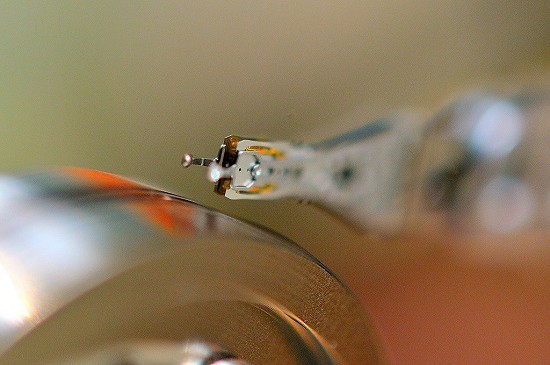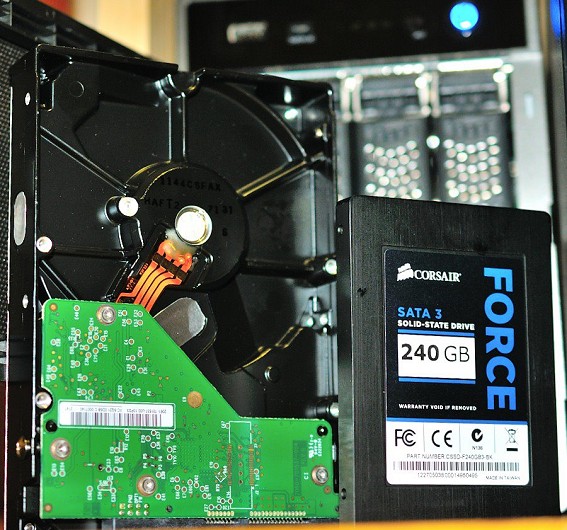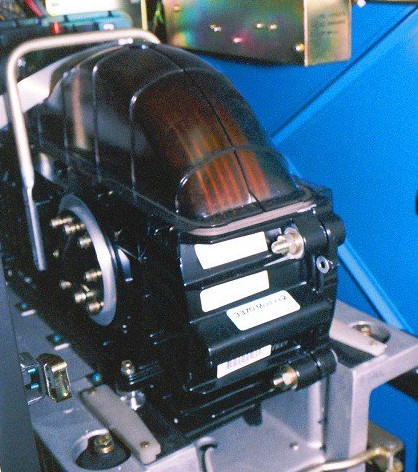Solid-State Drives
If your notebook is slow to boot and unresponsive during use, check to see if the hard-drive (HDD) light is on. If the hard-drive light seems to be on a lot of the time, instead of flickering, it's sign that the notebook is 'disk-bound'. It's a very common problem with notebooks/laptops.

Conventional hard-drives are similar to old record players. A disk spins underneath a reading head which detects the recorded items. Unlike a record player, the reading head does not contact the disk surface. Another difference is that the disk rotates at 5600rpm or more, compared to 33rpm of vinyl record players.
Contrary to popular belief, storage devices don't care how much is on them. Unlike your stomach, they don't feel full. More commonly, the problem is that files have been broken into parts spread across multiple locations on the disc, which means the drive has to do a lot of 'running-around' to retrieve them for you.
Other issues notebook hard drives suffer from are file fragmentation, heat generation and battery drain. The common complaint 'my computer has become old and slow' is a furphy. Computer circuits work at near light speed with precision timing. If your device has become slow it's either doing more things, or the hard drive file system has become fragmented.
Solid-state drives (SSD) offer a great performance improvement as they have no moving parts, lower power consumption, 85% lighter, and up to 10x faster accessing files than a traditional spinning disc.

Retrofitting an SSD to your notebook is affordable with 240GB drives now well under $200. Look for kits which contain utilities to simplify the migration of your data to the the SSD. Another positive indicator is an SSD which manages the distribution of file storage to ensure recycling of storage areas occurs evenly.
A number of manufacturers such as Corsair, Kingston and Intel produce SDD kits. Visit this FAQ to learn more about the technology, or contact us.
In closing, a flashback to a hard drive platter set from 1990. This IBM 3370 unit includes seven 14 inch disks (35.5cm) which yielded a total 0.5GB of storage.

